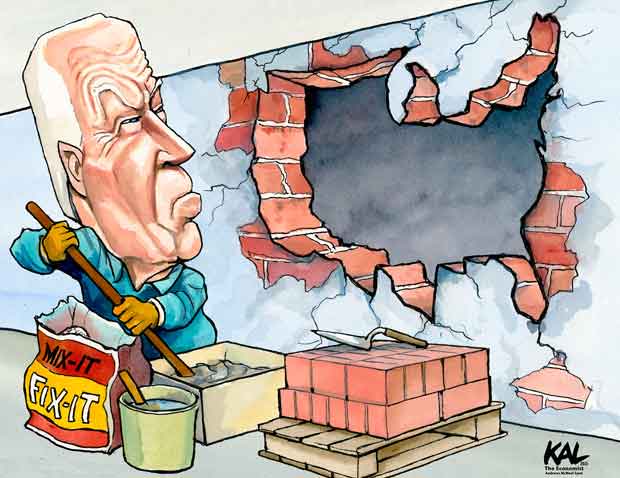
Contrast those remarks with the current president and his trip to the Middle East. A headline in the Connecticut Post asks the right question: "Biden once wanted to make Saudi Arabia a 'pariah' – so why is he playing nice with the kingdom's repressive rulers now?"
Biden will meet with Saudi Arabia's Prince Mohammed bin Salman (affectionately known as MBS), who has been accused by U.S. intelligence of sending a hit squad to murder journalist Jamal Khashoggi. Apparently feeling the heat of criticism from people opposed to the trip, Biden felt the need to explain himself in an op-ed for The Washington Post.
In it, Biden makes this ludicrous claim: "The Middle East I'll be visiting is more stable and secure than the one my administration inherited 18 months ago." He must have forgotten the Abraham Accords, which Trump and son-in-law Jared Kushner cobbled together. It normalized relations between Israel and five Arab countries, including Bahrain, the UAE and Morocco, something never before achieved. As usual, Biden gives no credit to Trump.
Speaking of not forgetting, Biden was part of an administration that spent nearly $350,000 supporting a group trying to unseat then-Prime Minister Benjamin Netanyahu, according to a U.S. Senate investigation. The administration has also been pushing for a nuclear deal with Iran, which has clearly failed and never had a chance of succeeding. That's because Iran's leaders have repeatedly said they are obeying Allah's command to acquire nuclear weapons.
Biden has said he will raise the issue of human rights with MBS. That is unlikely to produce positive results in a nation that has only recently allowed women to drive cars.
Despite the cover-up with noble intentions, this trip is about trying to persuade Saudi Arabia to produce more oil so U.S. gas prices will come down to tolerable levels ahead of the November and 2024 elections. What will the U.S. get in return? Probably no more than Biden and Obama got from opening diplomatic relations with Cuba.
Last February, Biden telephoned MBS to effectively ask him to pump more oil after he had curbed additional domestic oil production, reversing the much lower gas prices during the Trump administration. Biden seemed to be offering him a deal – Biden would provide more so-called "defensive weapons" for the Saudis to fight the Houthis in Yemen in exchange for more Saudi oil. Reading between the lines of reports about the call, it appeared MBS turned him down.
When Reagan visited Moscow, his approval ratings were 53 percent, according to Gallup. He dealt from a position of strength and moral clarity. Biden's approval numbers (if they can be called that) have declined to a record 33 percent, according to a New York Times/Siena College survey with a majority of Democrats wanting him to be replaced in 2024. Ninety percent of young Democrats want another candidate.
The Middle East has been relatively quiet in recent years. Biden's trip is unlikely to enhance stability and more likely to stir things up again. It has the potential of being a lose-lose for America and for Israel, which would be quite an accomplishment.
(COMMENT, BELOW)
Cal Thomas, America's most-syndicated columnist, is the author of 10 books.


 Contact The Editor
Contact The Editor
 Articles By This Author
Articles By This Author